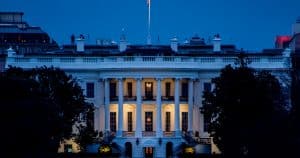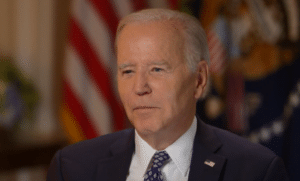Attorney Ty Cobb Believes Trump's Election Case Will Be Delayed Past Election
The U.S. Supreme Court is currently engaged in a significant legal deliberation over former President Donald Trump's contention that he possesses "absolute immunity" from criminal prosecution regarding his efforts to contest the 2020 presidential election results.
At the heart of this case is whether presidential actions intended to disrupt the peaceful transition of power are shielded by immunity, and one prominent attorney believes the matter will not reach trial stage until after the November election, as The Hill reports.
During a lengthy three-hour session on a Thursday, the justices heard intense arguments from Trump's defense team and opposing counsel. The defense argued that Trump's presidential immunity should shield him from prosecution for actions taken during his tenure, even those that attempted to prevent the transfer of power following his 2020 election loss.
Reflections on Presidential Accountability
The Supreme Court's response seemed tinged with skepticism, particularly towards the sweeping immunity claimed by Trump. The concern was primarily centered on the implications such immunity could have if it were to cover actions akin to an attempted coup.
Justice Ketanji Brown Jackson, along with other liberal justices, underscored the broader ramifications of the case. Their scrutiny was not just on the particulars of Trump's conduct but on the fundamental principles of presidential powers and legal accountability. The justices’ probing questions reflected a deep engagement with the potential consequences that the ruling might impose on the future actions of U.S. presidents.
Views From a Legal Expert
Former White House attorney Ty Cobb offered insight into the proceedings, emphasizing the Supreme Court's focus on future presidential conduct over the specifics of the Trump indictment. This perspective highlights the court’s concern with setting a precedent that could either excessively restrict or unduly free the actions of future presidents.
"I don’t think the Supreme Court is focused so much on the actual Trump indictment, as they are concerned about hamstringing for future presidents in terms of restraints on their ability to act officially without ... fear of retribution by their successors," said Cobb.
Cobb speculated that the timing of the trial would likely favor Trump by ensuring the case does not go to trial before the upcoming election, a delay which could work to his political advantage.
Implications of Delayed Judicial Decisions
“So, I think it benefits Trump in the sense that it’s almost certain that this case will not get tried before the election, in my view. So it benefits him in that regard,” Cobb stated.
He also added, “On the other hand, nothing that the justices are going to do is going to benefit his case, other than the delay." This captures the dual-edged nature of the situation where a delay might help Trump politically but doesn't necessarily aid his legal defenses.
This sentiment underscores a crucial aspect of high-stakes legal battles involving political figures, where the timelines can significantly impact the broader political landscapes.
Urgency in Judicial Review
Amid these critical discussions, special counsel Jack Smith, responsible for the federal election interference investigation, has urged the Supreme Court to expedite their decision. This request underscores the urgency and high stakes involved in resolving this matter ahead of the electoral cycles.
The direction in which the Supreme Court may lean remains closely guarded, yet the implications for U.S. governance and legal precedents concerning presidential conduct are profound. The conclusion of this legal battle will not only affect Trump but could also significantly influence the boundaries of executive power and accountability for future administrations.
In conclusion, the Supreme Court's decision on Trump's claim to immunity in actions attempting to overturn an election result carries implications beyond the immediate legal case. It influences future presidential conduct, legal accountability, and the broader democratic principles guiding the United States.
The insights from Ty Cobb highlight these potential impacts, focusing on the possible benefits of delay for Trump and concerns about setting restrictive precedents for future presidents. The final decision, expected by June's end, is awaited with bated breath by various quarters across the political and legal landscapes.




